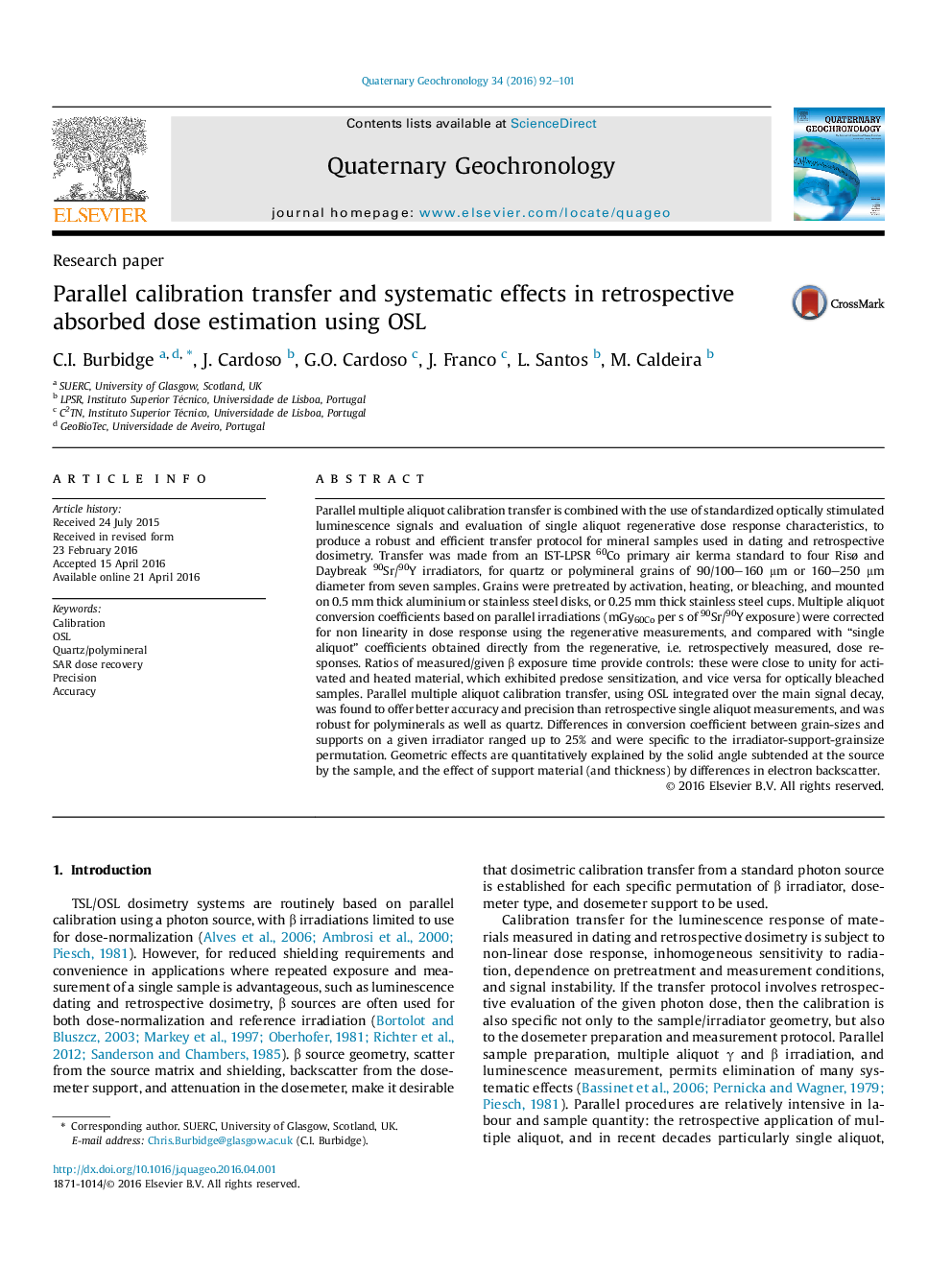| کد مقاله | کد نشریه | سال انتشار | مقاله انگلیسی | نسخه تمام متن |
|---|---|---|---|---|
| 4724855 | 1639842 | 2016 | 10 صفحه PDF | دانلود رایگان |

Parallel multiple aliquot calibration transfer is combined with the use of standardized optically stimulated luminescence signals and evaluation of single aliquot regenerative dose response characteristics, to produce a robust and efficient transfer protocol for mineral samples used in dating and retrospective dosimetry. Transfer was made from an IST-LPSR 60Co primary air kerma standard to four Risø and Daybreak 90Sr/90Y irradiators, for quartz or polymineral grains of 90/100–160 μm or 160–250 μm diameter from seven samples. Grains were pretreated by activation, heating, or bleaching, and mounted on 0.5 mm thick aluminium or stainless steel disks, or 0.25 mm thick stainless steel cups. Multiple aliquot conversion coefficients based on parallel irradiations (mGy60Co per s of 90Sr/90Y exposure) were corrected for non linearity in dose response using the regenerative measurements, and compared with “single aliquot” coefficients obtained directly from the regenerative, i.e. retrospectively measured, dose responses. Ratios of measured/given β exposure time provide controls: these were close to unity for activated and heated material, which exhibited predose sensitization, and vice versa for optically bleached samples. Parallel multiple aliquot calibration transfer, using OSL integrated over the main signal decay, was found to offer better accuracy and precision than retrospective single aliquot measurements, and was robust for polyminerals as well as quartz. Differences in conversion coefficient between grain-sizes and supports on a given irradiator ranged up to 25% and were specific to the irradiator-support-grainsize permutation. Geometric effects are quantitatively explained by the solid angle subtended at the source by the sample, and the effect of support material (and thickness) by differences in electron backscatter.
Journal: Quaternary Geochronology - Volume 34, August 2016, Pages 92–101